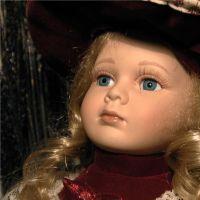

In 1872 at age 25, in Warsaw, Prus settled into a distinguished 40-year journalistic career.

Głowacki took the pen name "Prus" from the name of his family coat-of-arms.Īn indelible mark was left on Prus by his experiences as a 15-year-old soldier in the Polish 1863 Uprising against Imperial Russia, in which he suffered severe injuries and imprisonment. He was the leading representative of realism in 19th-century Polish literature and remains a distinctive voice in world literature. What remained was the appeal for tolerance and understanding of the Jews, who live in socio-cultural isolation, and especially for those who show commitment to Polish culture.Bolesław Prus (pronounced: Hrubieszów, Aug– May 19, 1912, Warsaw), whose actual name was Aleksander Głowacki, was a Polish journalist and novelist who is known especially for his novels The Doll and Pharaoh. The writer, who just a few years before witnessed and promoted the process of the Jews’ cultural assimilation, had by the time of writing the novel lost his faith in the possibility of transforming the Jewish population in the constituent part of Polish society. But in his writing Prus mostly condemned all forms of persecution of and discrimination against Jews. Sometimes his opinions were argued against, when his portrayal of Jewish characters was compatible with stereotypical, negative opinions, common in Polish culture and the Christian tradition. Prus devoted a lot of attention to Jewish question in his journalistic work, which was generally favorably received by the spokesmen of the Jewish community in Poland.
Summary/Abstract: It is a fragment of the afterword to the Hebrew edition of “Lalka” (“The Doll”), translated by Miriam Borenstein and soon to be released in Israel. Adama Mickiewicza Keywords: assimilation Bolesław Prus ethnic stereotype Jewish question Jews and Jewish Question in Boleslaw Prus’ “Lalka” Author(s): Samuel Sandler Żydzi i sprawy żydowskie w „Lalce” Bolesława Prusa


 0 kommentar(er)
0 kommentar(er)
